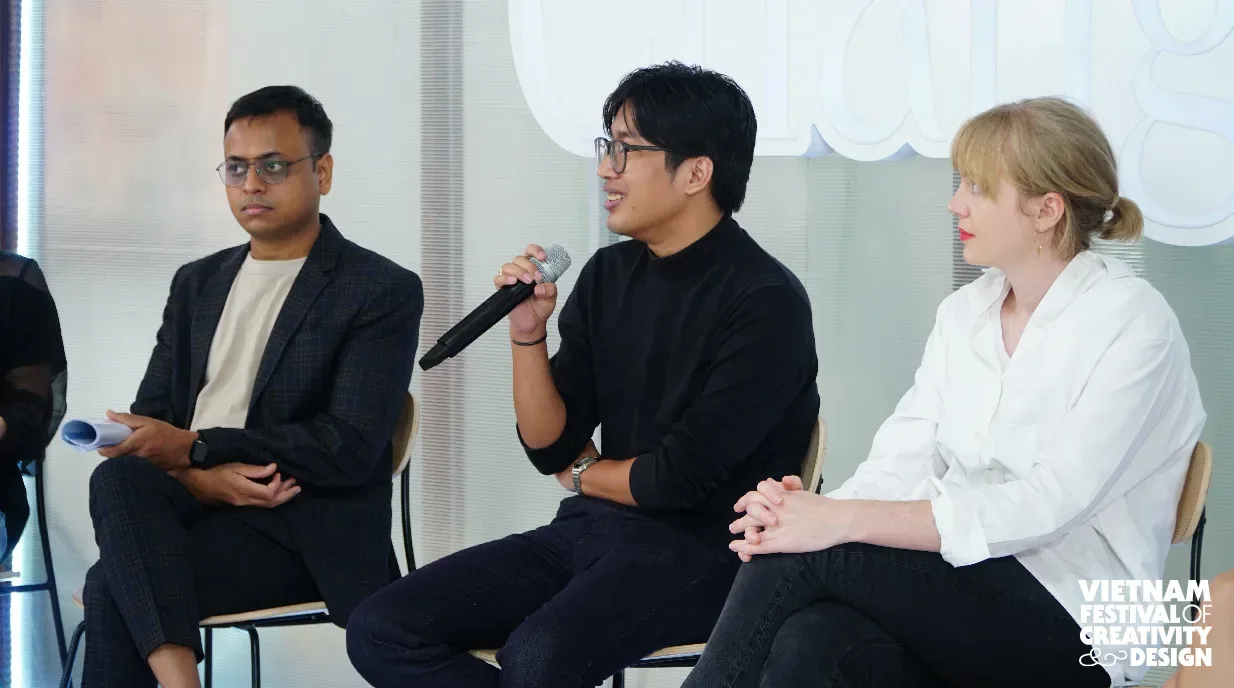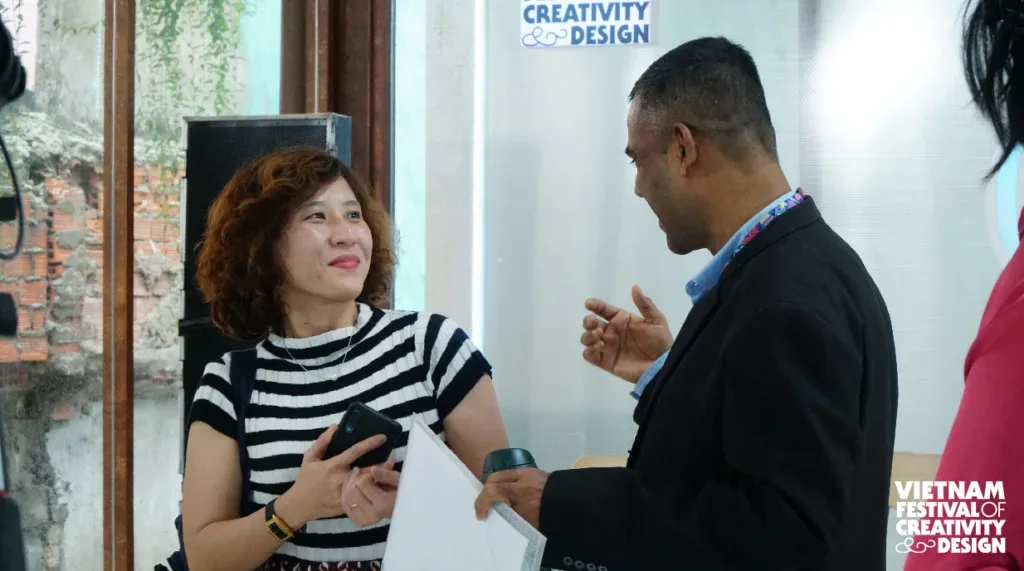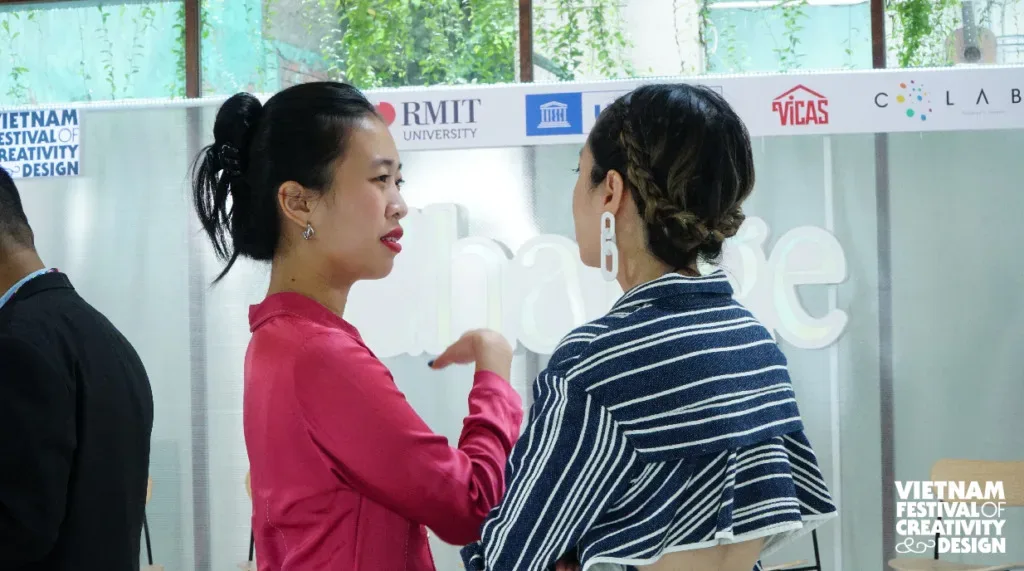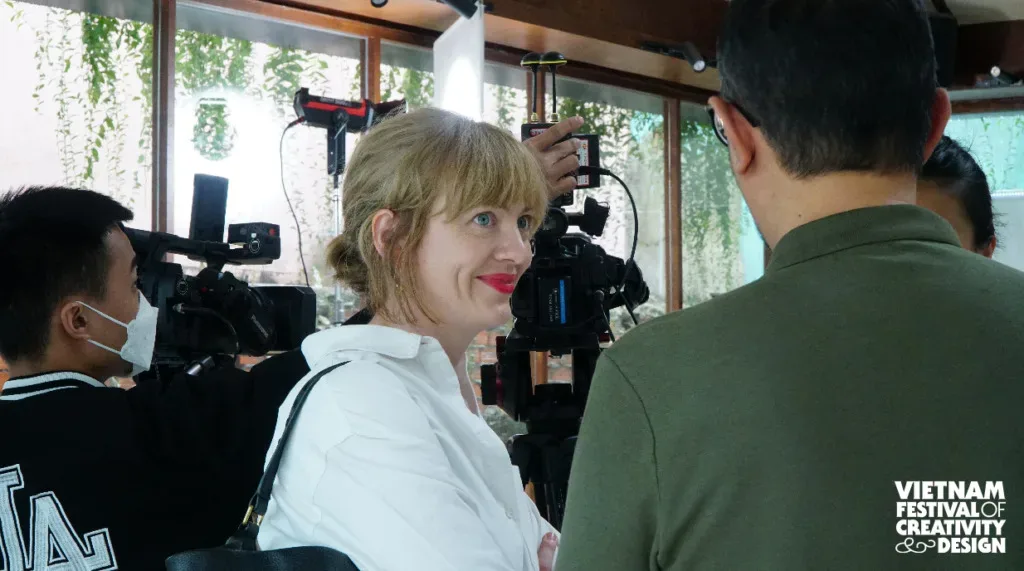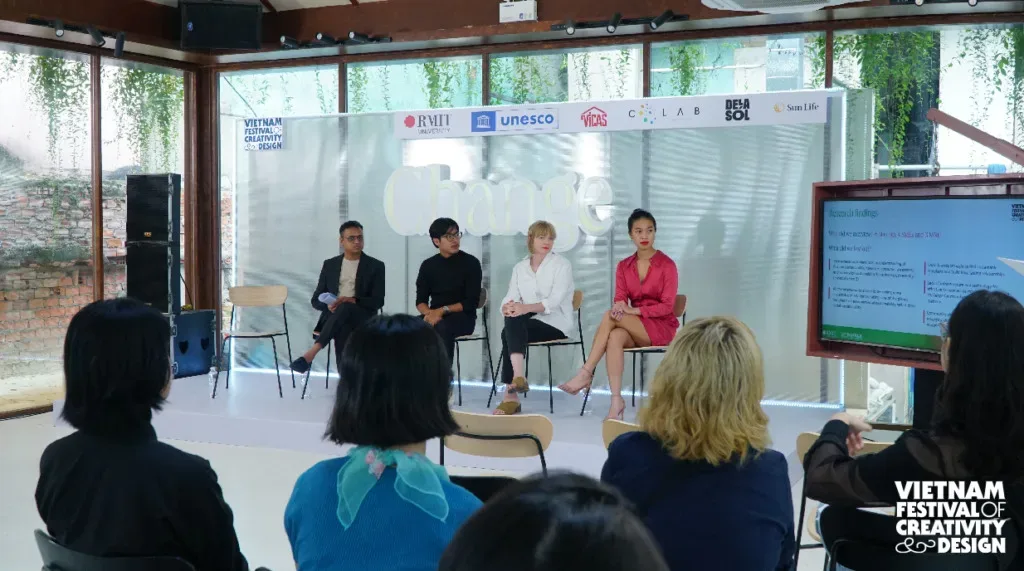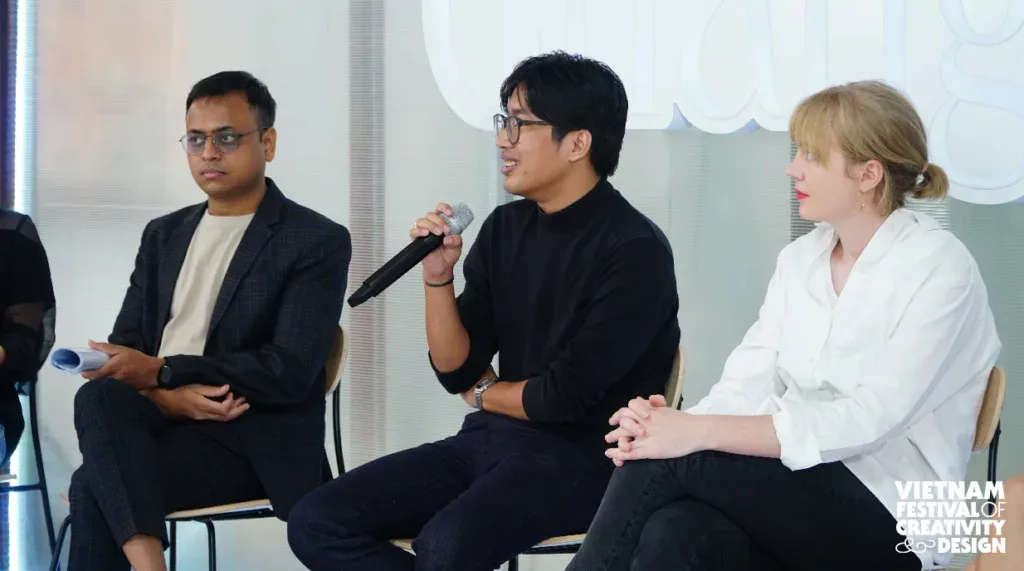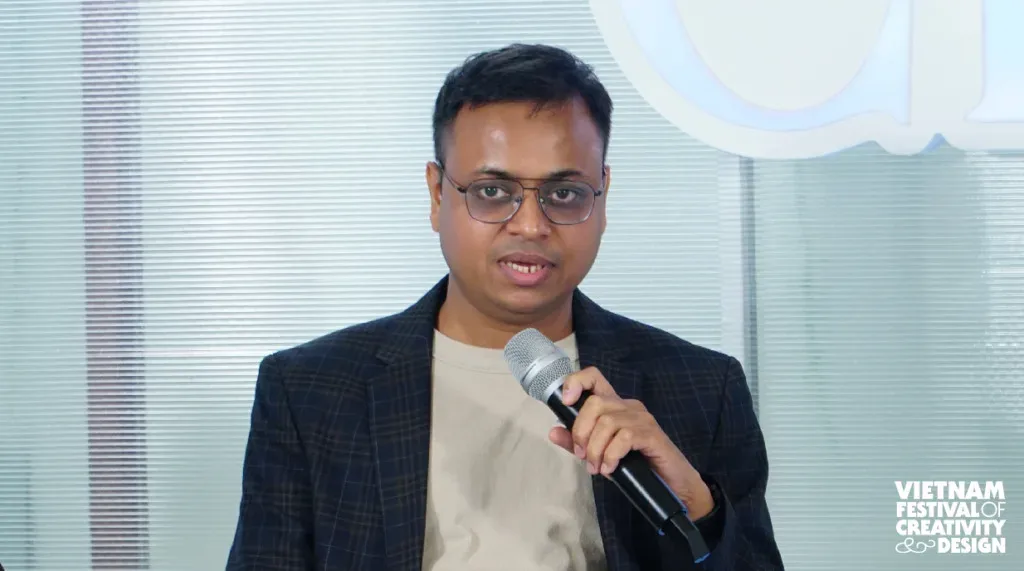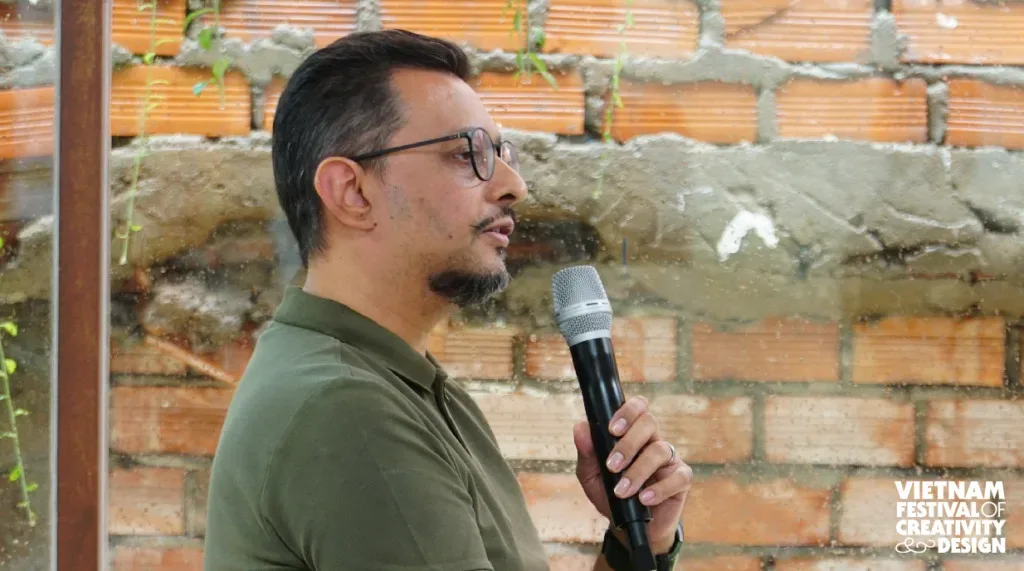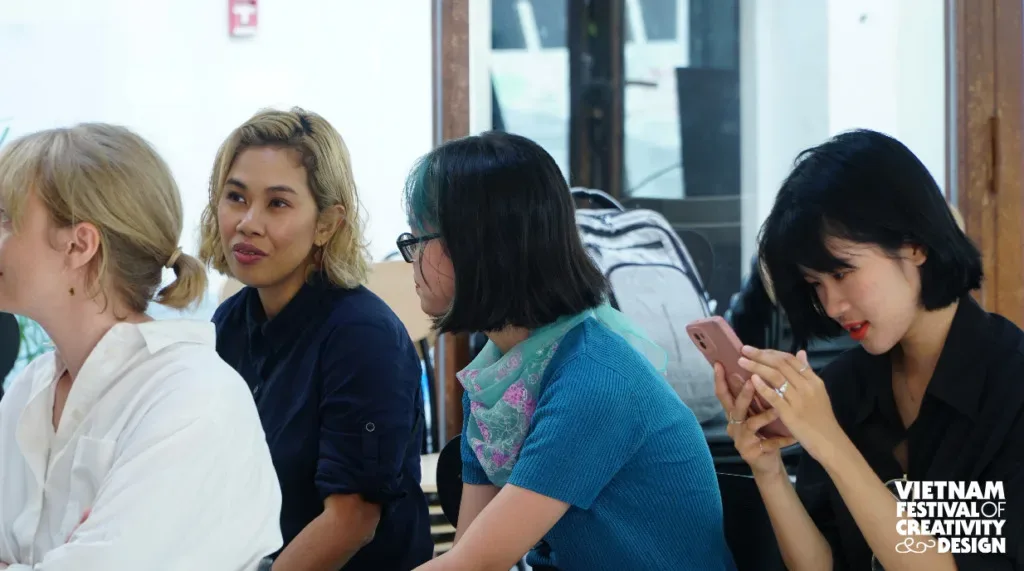On the morning of 24.11, the talk Pathways to circularity & sustainability took place in a vibrant atmosphere with 04 speakers who are experts in the fashion and textile industry, and audiences who are interested in the subject. The exchange raised multiple issues about sustainable fashion in Vietnam through the research from RMIT University Vietnam and the experiences of the speakers, while also presenting possible solutions.
According to the study conducted by RMIT, five key findings about sustainable fashion in Vietnam are: (1) Vietnamese customers lack an understanding of fashion sustainability (however, more young people are interested in the matter), (2) almost all interviewees aimed to become more sustainable, (3) local brands struggle to find sustainable suppliers, (4) lack of infrastructure and technology for effective fashion waste management remains a challenge, (5) community sharing in the sector is emerging through peer-to-peer resale and reuse models.
Thư Vũ, the founder of Passii, said that although consumers want to do good for the environment and the community, they still need to consider factors related to income, context, and choices on the market while they shop. Prior to the idea of sustainable fashion, the case could be that people who understand the problem could not afford the product, while those who could afford it don’t have the problem in mind, and therefore it is necessary to close this gap in the market. Reusing fashion items can be an effective solution because of the reasonable price, bringing back the flow into the market, and the idea based on which Passii operates. Not only is it a fashion consignment brand, but Passii also plays the role of a communication channel for sustainable fashion to consumers.
Catriona from SHOEfabrik – a footwear industry supplier, presented the mission of the stakeholders that establish circular and sustainable fashion: brands play a major role in shaping and bringing sustainable products to consumers; manufacturers need to perfect products, aiming at the circularity of materials; the government needs to support by issuing policies. It requires significant awareness, exchange and dialogue to achieve change; and the reality is that change is happening, but it would take some more time to be noticeable.
Sơn Tăng, the founder of Drobebox – a circular fashion platform employing product rental, raised the issue that the fashion industry has not taken advantage of technology for development. The technology could be a sales channel that assists the process of ordering product manufacture, optimises material sourcing and production, and predict shopping trends and habits; thereby avoiding rampant production and wasting materials, while better serving users. Drobebox is a technology-based platform for women to “wear more but pay less” by signing up for an online product rental subscription, in which products will be delivered to their doorsteps. Being able to try a large number of products, they would know which ones suit them to re-purchase, thereby limiting overspending.
Prateek Agarwal, an expert and researcher in textiles and supply chain who has worked as a consultant for multiple brands on their path to sustainability, provided a roadmap towards sustainable goals in fashion production in Vietnam. According to him, sustainability and circularity come from four aspects: product, design, process and materials. There are five key challenges to sustainable fashion: finance, supply balance, responsible consumption, attention to research data and partnerships with third parties, and education for raising public awareness. To overcome these problems, it takes a collaborative effort between corporations, businesses, NGOs, authorities and consumers.
During the open discussion, speakers received numerous interesting questions, from how brands can interact with users and carry out their missions of sustainable development, to reuse models, or how fashion rental is being received in Vietnam and its contributions to the community. With their knowledge and experiences, satisfactory and realistic responses were presented to the audience.
On the pathways to circularity and sustainability, conversations like this are absolutely necessary as they open up new opportunities for representatives from multiple stakeholders in the industry, relevant organisations and consumers to listen and voice their opinions, creating a foundation for better collaboration and addressing common issues.
